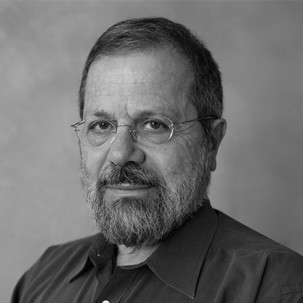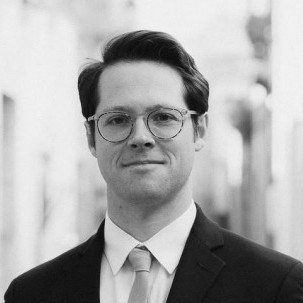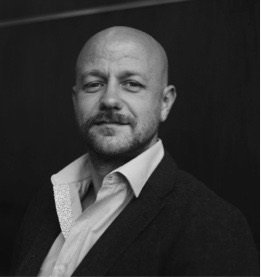Urban October Open House
The NYU Urban Expansion Program
The NYU Urban Expansion Program is a research and action program at the Marron Institute of Urban Management, at New York University (NYU). The program is dedicated to assisting municipalities of rapidly growing cities in preparing for their coming expansion, so that it is orderly and so that residential land on the urban fringe remains plentiful and affordable. Its work is divided into two components: Making Room for Urban Expansion and Monitoring Global Urban Expansion. The overall rationale for the program is laid out in Shlomo Angel's book, Planet of Cities.
As part of UN-Habitat’s global series of events for Urban October, the NYU Urban Expansion Program will hold an open house for anyone in the professional and academic community who is interested in learning more about the program's work. On Monday, October 29, the research staff of the Urban Expansion Program will welcome visitors to the Marron Institute and deliver a series of four lectures showcasing the highlights of their research over the past five years, including their on-the-ground planning work with fast-growing cities in Ethiopia and Colombia.
The Marron Institute is pleased to co-host this open house with the NYU Wagner Urban Planning Student Association. Please feel free to drop in for any part of the proceedings. We ask that those planning to attend RSVP at the link above so that we can provide the security desk with a list of guests.
Welcome (9:00 - 9:15AM)
Lecture 1 - Unplanned, Informal and Disconnected: Results and findings from the Atlas of Urban Expansion, 2016 Edition
(9:15 - 10:45AM)
In this lecture, the staff of the Urban Expansion Program will cover the findings of the Atlas of Urban Expansion, 2016 Edition, a global study of the quantitative and qualitative attributes of the urban development cities have undergone in the last 30 years. The Atlas was developed by the research team of the Program, in partnership with UN-HABITAT and the Lincoln Institute. The lecture will present the methodology and results of the study, which was conducted on a 200 global city sample. Presenters: Urban Expansion Team. Comments by Andrew Rudd of UN-Habitat.
Lecture 2 - The Anatomy of Density: Identifying Strategies to Promote Dense Urban Development
(11:00AM - 12:30PM)
Higher urban density is an ever-present objective in the realm of urban planners. However, we still know very little about how it can be accomplished it in practical terms. Understanding the factors that comprise urban density will allow policy and decision makers in the urban field to have a better understanding of its metrics and the possibility of actions to effectively achieve this goal. The presentation will cover a pilot study conducted in 10 cities. Presenters: Professor Shlomo Angel and Patrick Lamson-Hall.
Break (12:30 - 1:30PM)
Lecture 3 - Stakes in the Ground: From Plans to Action, Planning for the Next 30 years of Growth in Ethiopia and Colombia
(1:30 - 3:00PM)
During the next 50 years population growth in cities will be mostly a phenomenon of the developing world. Whereas cities in developed countries will receive an estimated 130 million people, those in the developing world will receive 2.5 billion. A substantial share of this grow will happen in intermediate cities. The urban expansion program provides technical assistance to intermediate cities in developing countries that are rapidly growing to help them plan and take actions to accommodate the physical expansion that will take place. Through minimal actions, cities will develop in a more orderly fashion making them more sustainable, inclusive and productive. The presentation will cover the work conducted with local and federal governments in Colombia and Ethiopia. Presenters: Professor Shlomo Angel, Nicolas Galarza, and Patrick Lamson-Hall.
Lecture 4 - Room to Grow: Principles for National Urban Planning Policies
(3:15 - 4:45PM)
The bulk of the economic output of the world is concentrated in cities, developed countries are already mostly urbanized, and developing countries are quickly following. As such, national governments should pay more attention to cities and their territorial development. Unenforceable or poorly implemented regulations and weak institutional capacity are only some of the problems governments face. The Urban Expansion Program partnered with the Colombian Federal Government to develop a methodology for improved and pragmatic urban planning with a component of capacity building to help cities foster their urban and territorial development. The presentation will cover the main aspects of the methodology and the capacity building tools developed to support local officials. Presenters: Professor Shlomo Angel and Nicolas Galarza.
Speakers

Professor of City Planning / NYU Marron Institute
Shlomo (Solly) Angel is a Professor of City Planning at the Marron Institute where he leads the NYU Urban Expansion Program. He is an international expert on housing and urban development policy, having written extensively on the subject, advised the United Nations, the World Bank, and the Inter-American Development Bank (IDB), and implemented projects on the ground. He currently focuses on documenting urban expansion and densification in a global sample of cities, as well as on advising rapidly growing cities on how to prepare adequate room for their inevitable expansion while making adequate room for the densification of their existing footprints as well.
In 1973, Angel started a program in Human Settlements Planning and Development at the Asian Institute of Technology in Bangkok. He taught at the Institute from 1973 to 1983, while researching housing and urban development in the cities of East, South, and Southeast Asia. He co-edited Land for Housing the Poor in 1982. From the mid-80s to mid-90s, he worked as a housing and urban development consultant to UN-Habitat, the Asian Development Bank, and the Government of Thailand. In 2000, he published Housing Policy Matters, a comparative study of housing conditions and policies in more than fifty countries around the world. From 2000 to 2010 he prepared housing sector assessments of 11 Latin America and Caribbean countries for the IDB and the World Bank. Since 2005, he has been documenting global urban expansion, resulting in the publication of The Dynamics of Global Urban Expansion in 2005, the Atlas of Urban Expansion in 2012 and 2016, and Planet of Citiesin 2012.
Angel earned a bachelor’s degree in architecture and a doctorate in city and regional planning at the University of California, Berkeley.

Nicolás Galarza was the Deputy Minister of the Environment at the Republic of Colombia until August 2022. Prior to that he was a research scholar in the Urban Expansion program of the NYU Marron Institute. Nicolás holds a Masters of Urban Planning from NYU Wagner Graduate School of Public Service. Prior to pursuing his Masters in New York City, Nicolás served as advisor to the Program Director of the National Poverty Alleviation Strategy and to the High Presidential Commissioner for Social Action on Civic Technology and Innovation in his native Colombia.

Patrick Lamson-Hall is an urban planner and a Fellow in the Urban Expansion program of the NYU Marron Institute. He has contributed to the development of the Atlas of Urban Expansion: 2016 Edition, a groundbreaking and original study of the dynamics of global urban growth. He manages the India Urban Expansion Observatory, a 30-person research facility located in Mumbai, India. He was the New York-based coordinator of the Ethiopia Urban Expansion Initiative, a project to implement long-term spatial plans in 16 Ethiopian cities and he coordinated the Climate Smart Cities: Grenada program, a collaboration with the Green Climate Fund.
Mr. Lamson-Hall holds a Master’s Degree in Urban Planning from the NYU Wagner School of Public Service. In addition to his work at NYU, he has contributed to the crafting of the sustainable development goals as an expert urban planner, has collaborated with UN-Habitat on the writing of a methodology for the assessment of public open space, and has shaped new strategies for the evaluation of cities using high-resolution satellite imagery. His other research interests include alternative transportation, special economic zones, and the measurement of urban density.

Andrew Rudd is the Urban Environment Officer for UN-Habitat’s Urban Planning and Design Branch in New York, where he manages a portfolio of projects related to urban form, landscape planning and public space. Before that, he co-led the agency’s substantive advocacy efforts for the Sustainable Development Goals. Previously Andrew worked as an architect in New York. He was editor of The Quito Papers and the New Urban Agenda (Routledge 2018) and contributing author to Urban Planet: Knowledge Towards Sustainable Cities (Cambridge 2018) and Urban Environmental Education Review (Cornell 2017). Andrew studied architecture at Yale and urbanism at the LSE.
Please fill out the information below to receive our e-newsletter(s).
*Indicates required.
